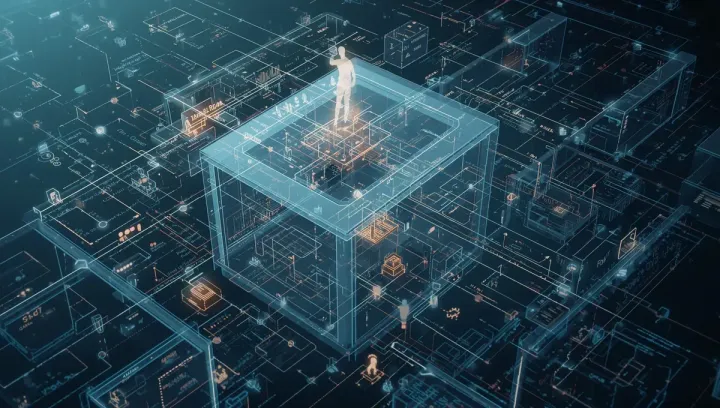
Beyond the Hype: Blockchain's Quiet Revolution in 2025
When you hear “blockchain,” your mind probably jumps to Bitcoin, volatile markets, and digital gold. For years, the technology was almost exclusively synonymous with cryptocurrency, shrouded in a speculative haze. But in 2025, a quiet revolution is unfolding. Blockchain has matured, shedding its speculative skin to reveal a foundational technology capable of transforming industries far beyond finance. It’s no longer just about digital money; it’s about digital trust, transparency, and efficiency.
This isn’t a future promise; it’s a present reality. From securing our food to verifying our identities, blockchain is subtly reshaping the digital infrastructure that underpins our daily lives. The real innovation isn’t in the price charts, but in the immutable ledgers now quietly powering the world.
Supply Chain Transparency: From Farm to Fork, Verified
One of blockchain’s most impactful real-world applications is in supply chain management. Consumers increasingly demand to know the origin and journey of their products—from ethical sourcing to food safety. Companies like Walmart and Nestlé are already leveraging blockchain to provide end-to-end traceability. Imagine scanning a QR code on your produce and instantly seeing its entire history: where it was grown, when it was harvested, and every stop it made before reaching your plate. This not only builds consumer trust but also drastically reduces fraud and enables rapid recalls in case of contamination. The blockchain acts as an incorruptible digital passport for every item, ensuring authenticity and accountability.
Digital Identity: Reclaiming Your Data
In an age of constant data breaches and identity theft, blockchain offers a revolutionary approach to digital identity. Decentralized Identifiers (DIDs) allow individuals to control their personal data, granting selective access to third parties without relying on centralized authorities. Estonia, a pioneer in e-governance, is already exploring blockchain for secure digital authentication. This means you could verify your age to an online service without revealing your birthdate, or prove your qualifications to an employer without sharing your entire academic transcript. It shifts power from institutions to individuals, promising a future where our digital selves are truly our own.
Healthcare: Secure Records, Seamless Care
Healthcare is another sector ripe for blockchain disruption. Fragmented medical records, data silos, and privacy concerns plague the industry. Blockchain can create secure, interoperable electronic health records (EHRs) that give patients control over who accesses their sensitive information. Projects like MedicalChain are demonstrating how blockchain can streamline data sharing between doctors, hospitals, and insurance providers, leading to more efficient diagnoses, faster claims processing, and ultimately, better patient care. The immutable nature of the ledger also ensures the integrity of clinical trial data and pharmaceutical supply chains, combating counterfeit drugs and enhancing patient safety.
Real Estate: Tokenizing Tangible Assets
Blockchain is democratizing real estate investment through asset tokenization. Instead of buying an entire property, investors can purchase fractional ownership in the form of digital tokens. Platforms like RealT are making high-value assets accessible to a broader range of investors, increasing liquidity and simplifying transactions. Beyond fractional ownership, blockchain can secure land registries, automate property transfers with smart contracts, and reduce the fraud prevalent in traditional real estate dealings. It promises a future where property transactions are faster, cheaper, and more transparent.
Energy Management: A Decentralized Grid
The energy sector is also tapping into blockchain’s potential. Peer-to-peer energy trading platforms, like Power Ledger, allow individuals to buy and sell surplus renewable energy directly from their solar panels to their neighbors, bypassing traditional utility intermediaries. This not only promotes sustainable practices but also creates a more decentralized and resilient energy grid. Blockchain can also be used for transparent tracking of carbon credits and ensuring the provenance of green energy sources, driving accountability in the fight against climate change.
The Road Ahead: Challenges and Opportunities
Despite its immense potential, blockchain faces hurdles. Scalability remains a challenge for some networks, regulatory uncertainty persists in many jurisdictions, and integrating with entrenched legacy systems requires significant effort. However, as modular blockchain architectures, zero-knowledge proofs, and cross-chain interoperability solutions continue to evolve, these challenges are being actively addressed.
In 2025, blockchain is no longer a niche technology. It’s a foundational layer for a more transparent, secure, and efficient digital world. The companies and industries that embrace its transformative power beyond the speculative allure of cryptocurrencies will be the ones that truly shape the future.


